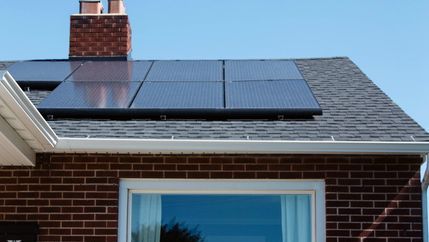
Grant funds will be targeted at low-income households living in properties with an EPC rating of D-G, and there will be nothing to pay for owner-occupiers or tenants. The award can be spent on replacing heating systems with low-carbon alternatives such as heat pumps or high-retention storage heaters, and on energy performance or smart measures such as insulation, double glazing, and solar panels.
Full details of the scheme are available on GOV.UK →
Requirements for PRS homes
Properties rated in EPC bands F and G must have registered exemptions under the Energy Efficiency (Private Rented Property) (England and Wales) Regulations 2015 to be eligible for the scheme.
Landlords can have one property fully funded by the Scheme but must contribute 50% towards the cost of upgrades to any additional homes. They must then sign a declaration to confirm they will not raise rents as a direct result of the upgrades being installed.
Lessons learned
Evaluations of previous schemes, including Local Authority Delivery (LAD) and the Home Upgrade Grant (HUG), have been fed into the design of the Local Grant. This has resulted in simpler eligibility criteria, with all heating fuel types accepted, and a straightforward cost cap. The Grant is also more generous to landlords in recognition of low take-up under earlier schemes.
Three routes to eligibility
A household can be approved for the scheme if they meet the criteria of one of three pathways.
- Homes in pre-approved postcode areas identified as the most deprived in England.
- Households who receive certain means-tested benefits, including Housing Benefit and Universal Credit, or who are identified as vulnerable.
- Households with a gross annual income below £36,000, or the equivalent after housing costs.
Homes that cannot meet EPC C
The UK Government has stated that the primary objective of the Warm Homes: Local Grant is to progress the reduction of fuel poverty and loweringannual energy bills for low-income households. Therefore, if a property can’t be brought up to EPC C within the cost cap, it can still benefit from improvements that offer value for money and achieve the biggest bill savings for the occupiers.
Park homes are also included, so long as they are used as permanent residences and are expected to outlast the lifespan of the upgrades. The energy performance of the park home must also be equivalent to an EPC band D-G.
Energy efficiency
The UK housing stock is amongst the least energy efficient in Europe and the Committee on Climate Change says that energy use in homes accounts for about 14 per cent of UK greenhouse gas emissions. Non-domestic buildings account for around one-third of UK emissions from the building stock.







